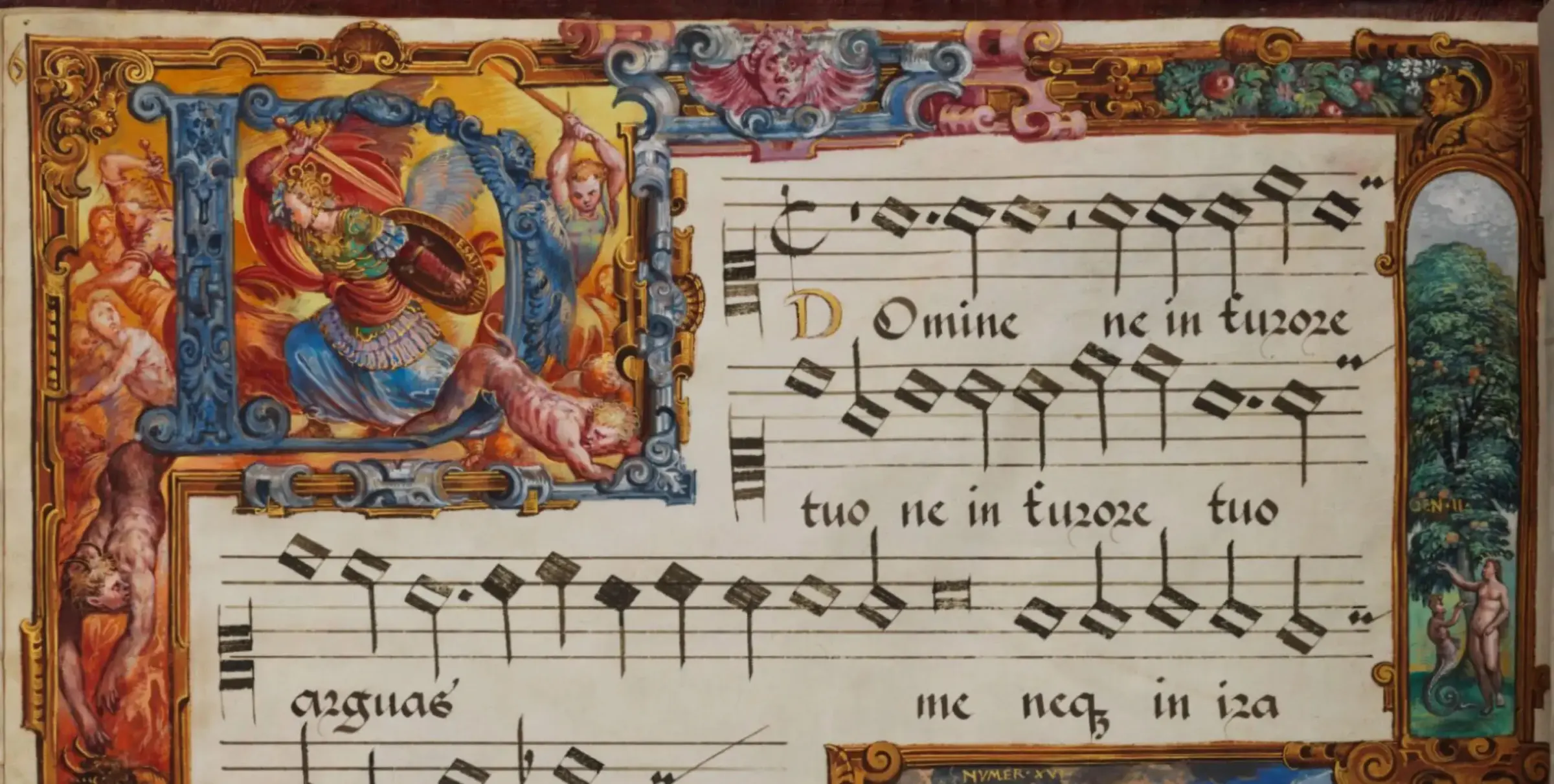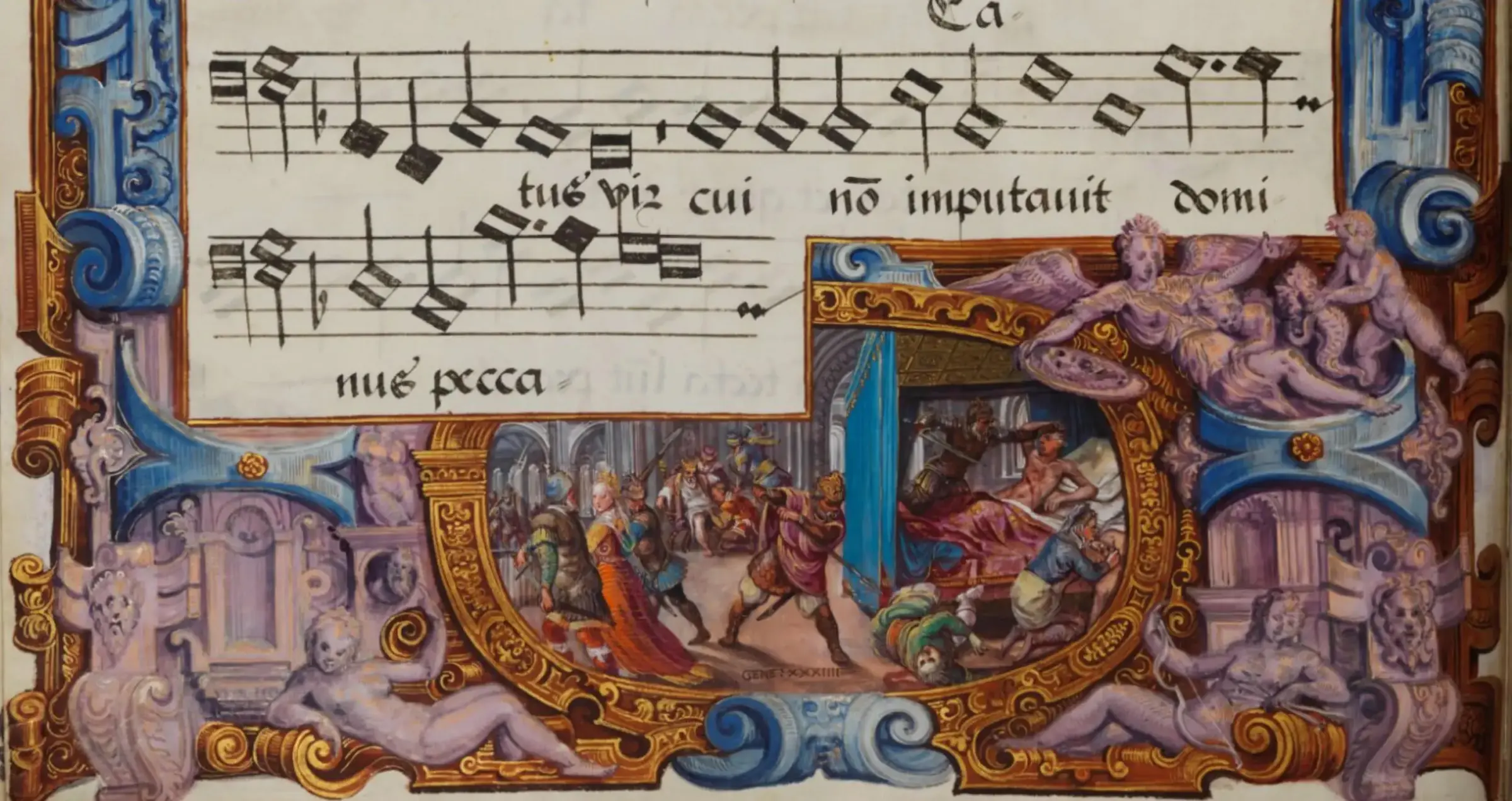
On February 1, 2025, Cappella Amsterdam released a remarkable double CD on the PENTATONE label: a complete recording of the Penitential Psalms (Psalmi Davidis Pœnitentiales) by Orlandus Lassus. These masterpieces of polyphonic splendor are among the highlights of Renaissance music. But what makes these psalms so special? And how did Lassus manage to become one of the most celebrated composers of his time?
Orlandus Lassus (1532, Mons – 1594, Munich) was one of the most prolific and influential composers of the late Renaissance. He was known by several names: Orlando di Lasso, Roland de Lassus, and Roland de Lâtre. His music enjoyed unprecedented popularity in his time: almost 60% of all printed music between 1555 and 1600 was written by him. This made him a dominant figure in the musical landscape of the sixteenth century. The fact that his works were printed at all was remarkable. The art of printing was still in its infancy and up to that point, compositions were preserved exclusively as handwritten manuscripts.
In 1556, Albrecht V, Duke of Bavaria, appointed Lassus as court composer. This made him a pivotal figure within the Munich court chapel, where he worked for nearly three decades. However, the Duke strongly opposed the publication of Lassus’ compositions, keeping the works of his “private composer” strictly within the walls of the court. He wanted to preserve the exclusivity of this music and prevent the compositions from gaining fame outside the court. Everything Lassus composed at the behest of Albrecht V remained a hidden treasure for many years, accessible only to a select few at court.
The penitential psalms
Lassus’ Penitential Psalms, or the Psalmi Davidis Pœnitentiales, are among the most significant works in his oeuvre. These seven psalms, centered around themes of repentance and reflection, are marked by sophisticated text expression.
They are among Lassus’ most intimate and emotionally charged compositions. His signature polyphonic richness is woven together with an extraordinary depth of emotion. The music breathes introspection and forgiveness. Subtle dissonances and carefully constructed tension highlight the spiritual and religious side of the lyrics. For Lassus, music was more than sound – it was a profound means of conveying human emotion. He became a master at expressing lyrics with emotional layering in music. Different emotions can be heard in these psalms: for example, we hear supplications full of sadness, but also moments of resignation and hope.
The pleading “Lord, do not punish me in your wrath, do not strike me with your indignation. Be merciful to me, Lord, for my strength is failing’ from the Primus Psalmus Pœtentialis.
The more hopeful “For You do not desire sacrifices from me – did You desire them, I would give them to You. But You do not care for burnt offerings. The true offering to God is a broken spirit; a heart full of repentance You, God, will never reject. from the Quartus Psalmus Pœtentialis.
A magnificent manuscript
Although the duke forbade the printing of the psalms, he did commission a beautifully illuminated manuscript, a work of art in its own right, where music and imagery seamlessly intertwine. It was only five years after Albrecht’s death, in 1584, that the first printed version of the Penitential Psalms was finally published, allowing these masterpieces to reach a wider audience.



Listen and order
The double CD Lassus: Penitential Psalms will be available on Apple Music and Spotify starting February 1 and also available for pre-order via this form. Cappella Amsterdam has received widespread acclaim for previous recordings from both audiences and critics alike. Thus, NRC posted the album Tales of Song and Sadness in the list of the 25 best Dutch albums of 2024 and called it a “a unique, diverse, brilliantly interpreted document. You can read the full review here.









